CDN Security Best Practices for Ecommerce 2024
Here's what you need to know about CDN security for online stores in 2024:
- CDNs protect ecommerce sites from attacks and make them faster
- Key threats: DDoS attacks, data breaches, cache poisoning, SSL/TLS issues, bots
-
Must-have CDN security features:
- DDoS protection
- Web application firewall (WAF)
- SSL/TLS encryption
- Access controls
- Real-time monitoring
| Best Practice | Why It Matters |
|---|---|
| Choose a secure CDN provider | Ensures strong protection |
| Set up proper access controls | Limits who can make changes |
| Do regular security audits | Finds and fixes vulnerabilities |
| Keep systems updated | Patches security holes |
| Use content security policies | Prevents malicious code injection |
Follow these practices to keep your online store safe from cyber threats in 2024.
Related video from YouTube
CDN Security Basics for Ecommerce
This section explains how Content Delivery Networks (CDNs) help keep online stores safe.
What is a CDN?
A CDN is a group of servers spread out in different places. These servers send website content to users from nearby locations. This makes websites load faster and work better.
CDN Benefits for Online Stores
| Benefit | Description |
|---|---|
| Faster loading | Pages load quicker for customers |
| Better safety | Protects against online threats |
| Always online | Keeps sites running even when busy |
| Lower costs | Uses less internet data |
How CDNs Keep Online Stores Safe
CDNs protect online stores in these ways:
1. Stop attacks
CDNs can handle large amounts of fake traffic that try to crash websites.
2. Encrypt data
CDNs use special codes to keep customer information private.
3. Control who gets in
CDNs can block unwanted visitors and limit how often people can access the site.
4. Watch for dangers
CDNs keep an eye out for threats and can respond quickly if something looks wrong.
Main CDN Security Threats in 2024
Online stores using CDNs face several security risks in 2024. Here are the main threats:
DDoS Attacks
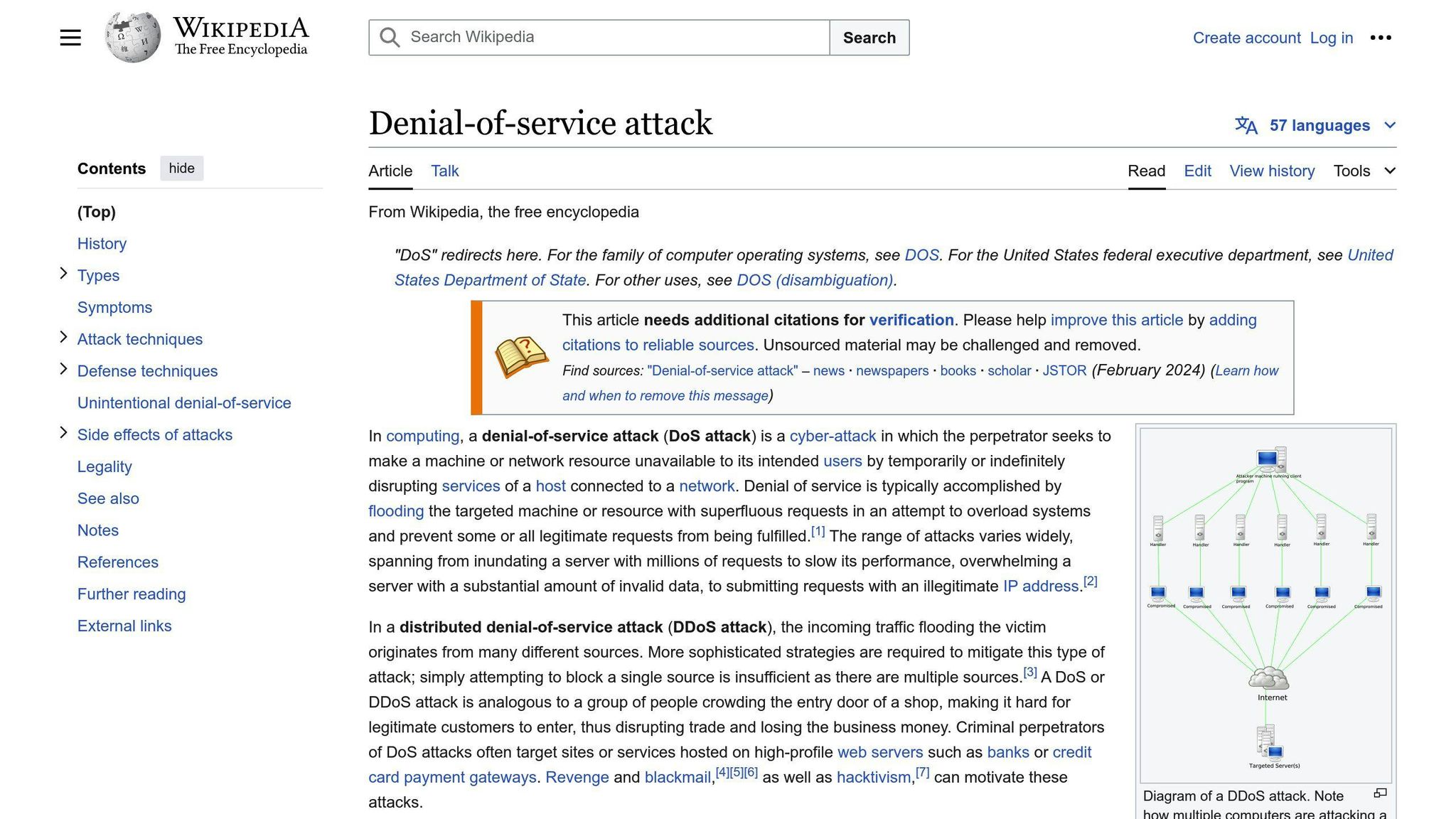
DDoS attacks flood CDNs with fake traffic. This can:
- Crash websites
- Stop customers from shopping
- Hurt the store's reputation
CDNs need strong protection against these attacks.
Data Breaches
Hackers try to steal sensitive information from CDNs. This includes:
- Customer credit card numbers
- Personal data
To prevent this, CDNs must use:
- Strong encryption
- Strict access controls
Cache Poisoning
Attackers can change stored content on CDNs. This leads to:
- Showing fake pages to users
- Spreading harmful code
CDNs should:
- Check stored content regularly
- Use safe storage methods
SSL/TLS Problems
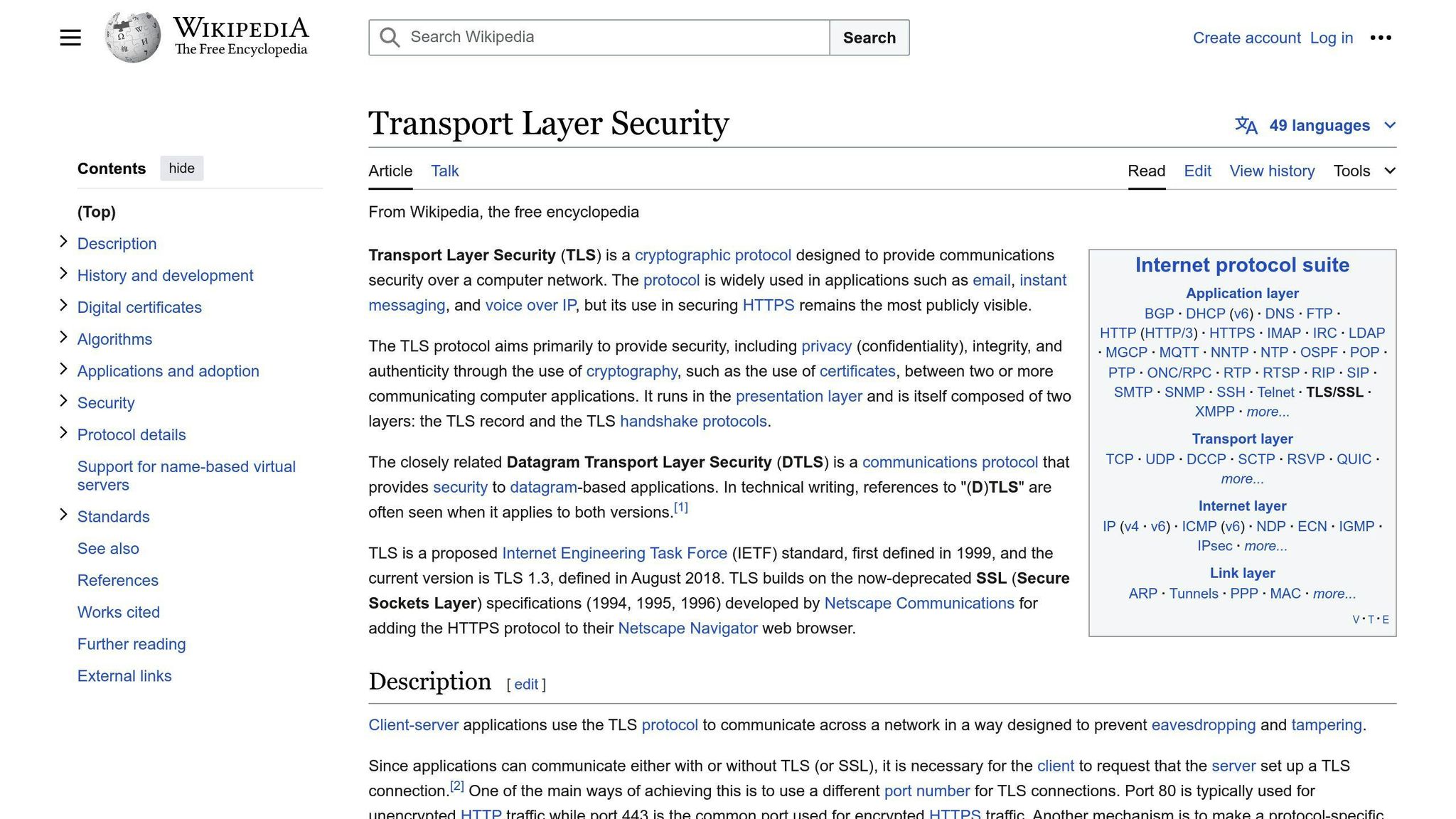
SSL and TLS keep data safe during transfer. But they can have weak spots. CDNs must:
- Use the newest SSL/TLS versions
- Set them up correctly
Bot Attacks and Data Scraping
Bad bots can:
- Overload CDNs with requests
- Steal data
- Cause website slowdowns
To stop this, CDNs should:
- Limit how often requests can be made
- Block suspicious IP addresses
| Threat | Impact | Prevention |
|---|---|---|
| DDoS Attacks | Website crashes, lost sales | Strong traffic filters |
| Data Breaches | Stolen customer info | Encryption, access limits |
| Cache Poisoning | Fake content shown | Regular content checks |
| SSL/TLS Problems | Unsafe data transfer | Use latest versions |
| Bot Attacks | Slowdowns, data theft | Request limits, IP blocking |
Key CDN Security Features for Ecommerce
CDNs help keep online stores safe. Here are the main security features to look for:
DDoS Protection Tools
DDoS attacks can crash websites. Good CDNs have tools that:
- Spot attacks quickly
- Stop bad traffic
- Keep sites running
Web Application Firewall (WAF) Use
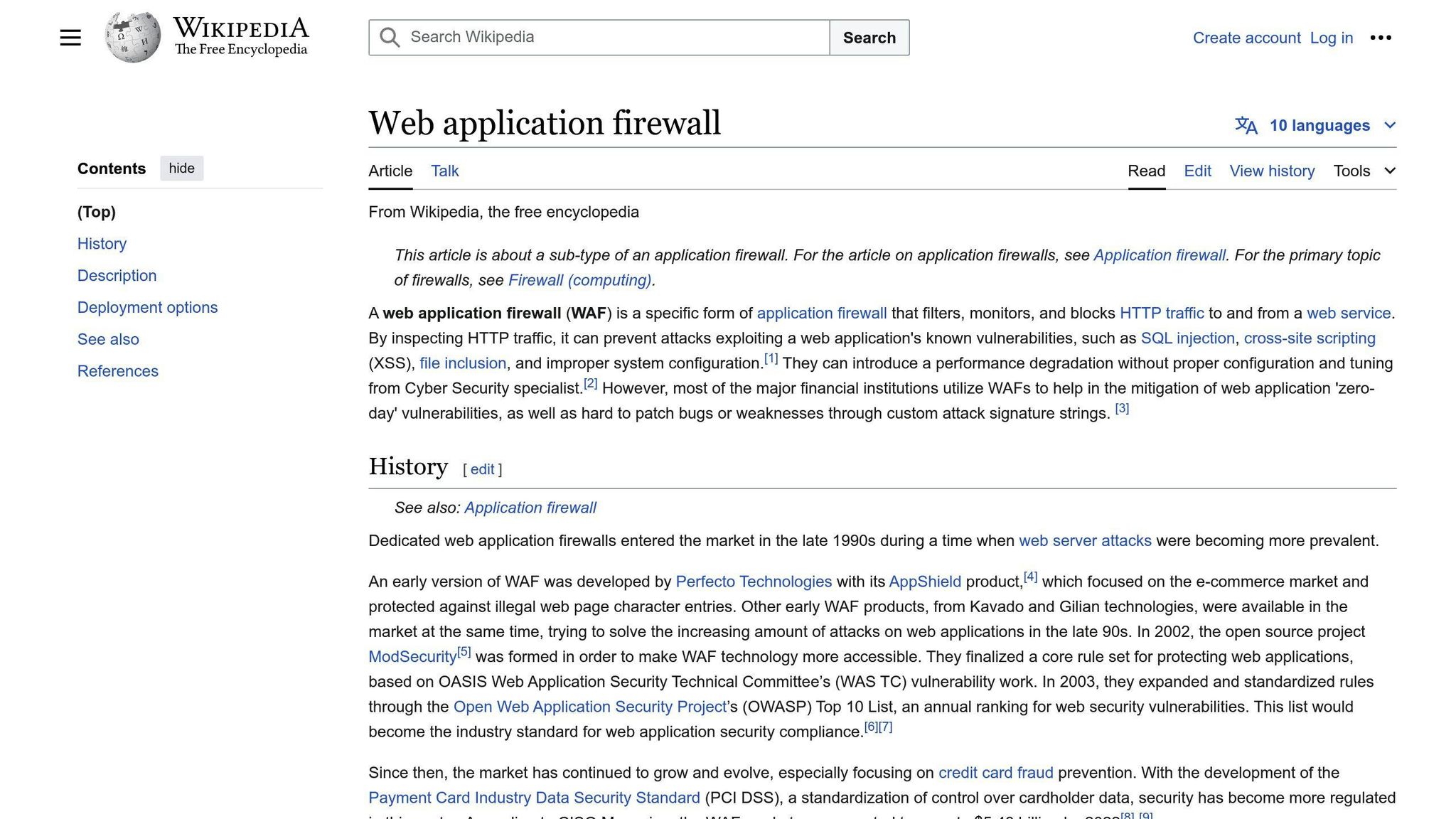
WAFs block harmful web traffic. CDNs should have WAFs to:
- Stop common attacks
- Protect customer data
SSL/TLS Encryption Management
Encryption keeps data safe. CDNs should:
- Handle SSL/TLS setup
- Keep encryption up-to-date
- Protect data transfers
Access Control Methods
CDNs need strong ways to control who gets in. This includes:
- Allowing only certain IP addresses
- Using passwords
- Requiring two-step login
Real-time Threat Monitoring
CDNs should watch for dangers all the time. This means:
- Spotting odd behavior
- Finding possible threats
- Acting fast when problems happen
| Feature | What It Does | Why It's Important |
|---|---|---|
| DDoS Protection | Stops website crashes | Keeps store open for business |
| WAF | Blocks bad web traffic | Protects customer information |
| SSL/TLS Management | Encrypts data | Keeps private info safe |
| Access Control | Limits who can get in | Stops unwanted visitors |
| Threat Monitoring | Watches for dangers | Catches problems early |
CDN Security Best Practices for Ecommerce
Here are key steps to keep your online store safe with a CDN:
Picking a CDN Provider
Choose a CDN that:
- Stops attacks well
- Works fast and reliably
- Has good security tools
Look for these features:
- DDoS protection
- Web firewalls
- Data encryption
- User controls
- Threat watching
Setting Up User Controls
Control who can change your CDN:
- Use two-step login
- Give different access to different roles
- Check who's using it often
Regular Safety Checks
Keep checking your CDN's safety:
- Look for weak spots
- Fix problems quickly
- Update often
Keeping Systems New
Always update:
- CDN software
- Add-ons
- Website parts
This fixes holes hackers could use.
Using Content Rules
Set rules about what can load on your site. This stops:
- Bad scripts
- Unwanted content
Layered Safety
Use many safety steps together:
| Layer | What It Does |
|---|---|
| CDN | Speeds up site, blocks attacks |
| Firewall | Stops bad traffic |
| Encryption | Keeps data private |
| User Controls | Limits who can change things |
| Safety Checks | Finds problems early |
sbb-itb-be22d9e
Advanced CDN Security Methods
This section covers new ways to keep online stores safe using CDNs.
AI for Spotting Threats
AI helps CDNs find and stop attacks faster. It can:
- Look at lots of data quickly
- Find odd patterns that might be attacks
- React to threats without human help
This makes CDNs better at keeping online stores safe.
Edge Computing Safety
Edge computing means putting computer power closer to users. To keep this safe, CDNs use:
- Codes to hide data
- Checks to make sure only the right people get in
- Watching for dangers at the edge
This helps protect customer information on online stores.
Never Trust, Always Check
This new way of thinking about safety assumes everyone might be a threat. CDNs use this idea by:
- Checking everyone who tries to use the system
- Using two or more ways to make sure users are who they say they are
- Always watching what users do
This makes it harder for bad people to move around if they get in.
API Safety for CDNs
APIs are ways for different computer systems to talk to each other. To keep these safe, CDNs:
- Limit how often they can be used
- Block computers that might be dangerous
- Use codes to keep information private
This stops people from misusing APIs to steal data from online stores.
| Method | What It Does | Why It's Good |
|---|---|---|
| AI Threat Spotting | Finds attacks fast | Stops problems quickly |
| Edge Computing Safety | Protects data near users | Keeps customer info safe |
| Never Trust, Always Check | Checks everyone all the time | Makes it hard for bad guys to move around |
| API Safety | Protects how systems talk | Stops data theft |
CDN Security Rules and Regulations
Online stores using CDNs must follow certain rules to keep customer data safe. Here are the main rules CDNs need to follow:
PCI DSS for Online Store CDNs
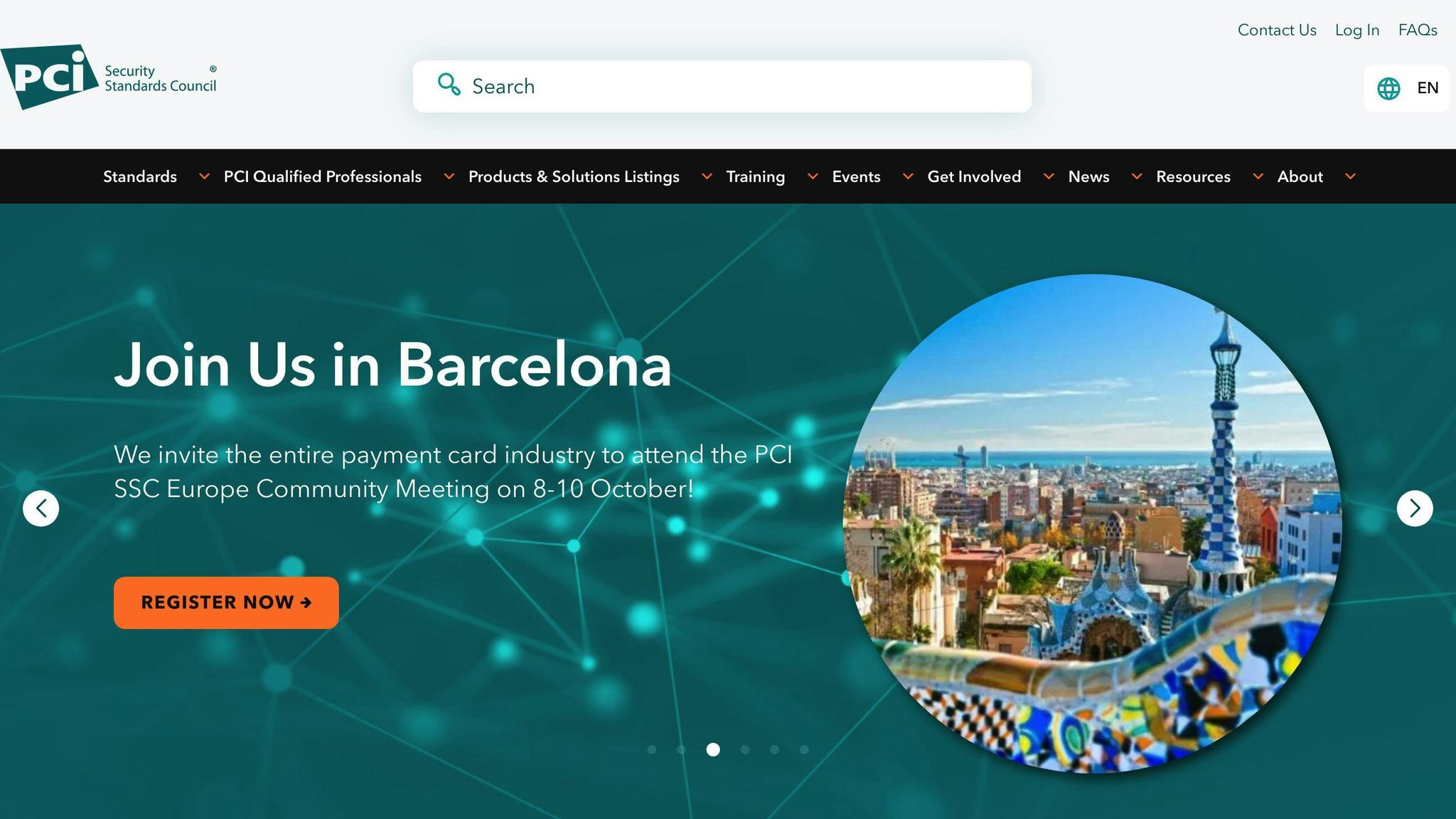
PCI DSS is a set of rules for handling credit card information. CDNs that work with online stores must:
| Requirement | Description |
|---|---|
| Encrypt data | Keep customer payment info secret |
| Use safe ways to send data | Protect info when it's moving |
| Check for weak spots | Look for problems often |
| Control who can see info | Only let the right people access data |
GDPR and Data Protection
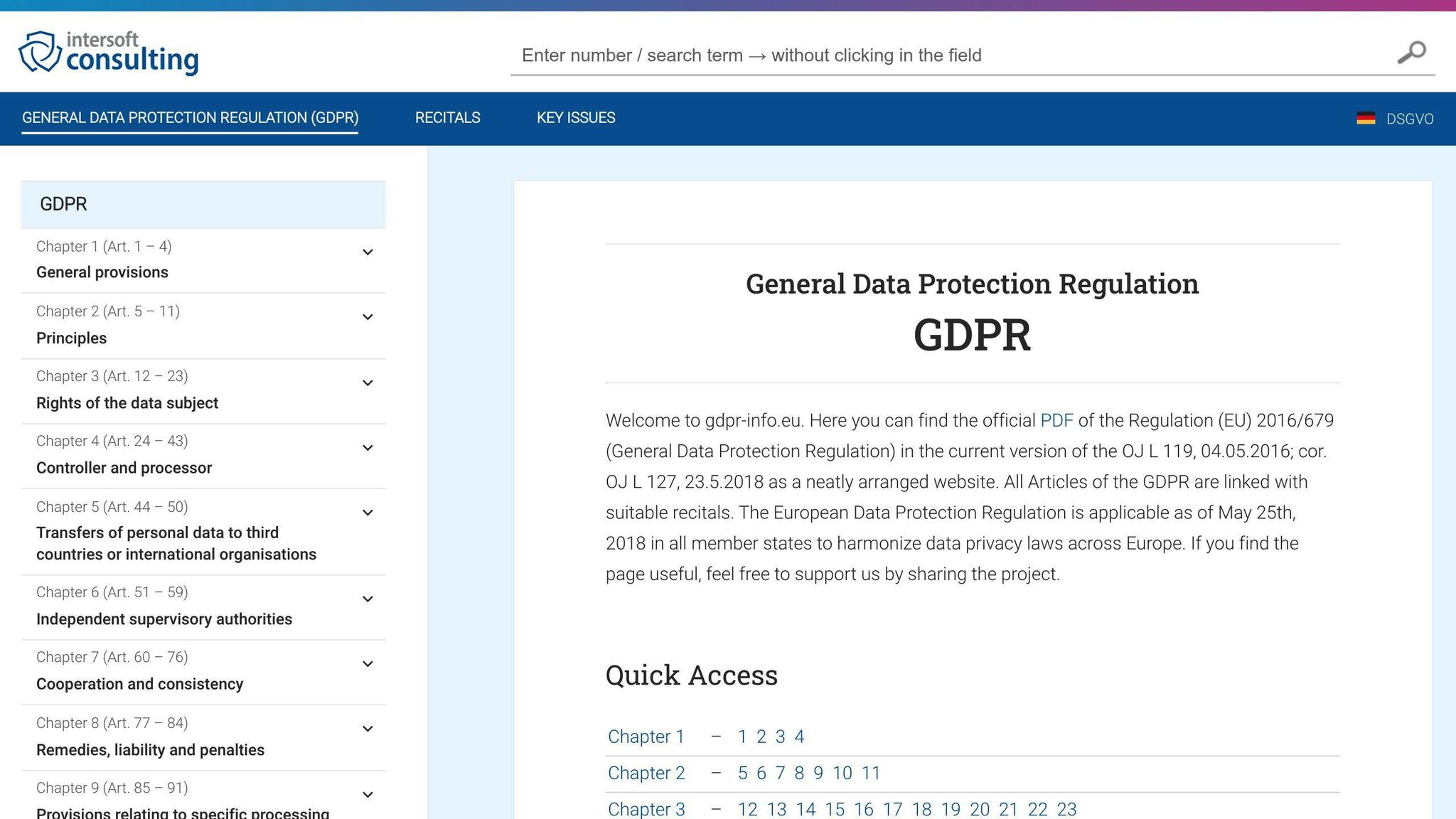
GDPR is a rule in Europe that protects people's personal info. CDNs must:
- Ask users if it's okay to use their data
- Tell users how they protect data
- Keep personal info safe
- Be ready to act fast if data is stolen
Rules for Different Types of Businesses
Some businesses have extra rules. For example:
| Business Type | Extra Rules |
|---|---|
| Healthcare | HIPAA rules |
| Banks | FINRA rules |
CDNs need to know these extra rules and follow them. This might mean:
- Using more ways to control who sees data
- Adding extra protection to keep data secret
- Watching data more closely
Tracking CDN Security Performance
Keeping an eye on how well your CDN protects your online store is key. Here's how to do it:
Important Security Metrics
Watch these numbers to see how safe your CDN is:
| Metric | What It Means |
|---|---|
| Response time | How fast the CDN answers requests |
| HTTP status codes | Codes that show if there are problems |
| Traffic patterns | How many people use your site and when |
| Error rates | How often things go wrong |
Ways to Keep Watch
Use these tools to check your CDN's safety all the time:
- Real-time tools: See what's happening right now
- Log checking: Look at records of what happened
- SIEM systems: Special tools that watch for danger signs
What to Do If Something Goes Wrong
Have a plan ready in case of trouble:
1. Make a plan
Write down what to do if there's a problem.
2. Tell people
Know how you'll let customers know about issues.
3. Find out why
After fixing the problem, figure out why it happened to stop it next time.
Future of CDN Security in Ecommerce
As online shopping grows, CDN security for ecommerce is changing. New tech and threats are shaping how we protect online stores.
New Tech and CDN Security
AI is making CDNs safer for online stores. It helps by:
- Finding threats faster
- Stopping new kinds of attacks
- Catching bad bots better
Edge computing is also helping CDN security. It:
- Makes security checks faster
- Protects against local threats better
- Keeps data safer during sales
Future Threats and Solutions
As online stores grow, so do the risks. Here are some new threats and how to stop them:
| Threat | What It Is | How to Stop It |
|---|---|---|
| AI attacks | Smart computer attacks | Use smarter defense systems |
| Quantum computer risks | Super-fast computers breaking codes | Make stronger codes |
| IoT attacks | Using many small devices to crash sites | Check traffic more carefully |
| Supply chain attacks | Attacking the tools CDNs use | Check partners' safety often |
To stay safe, CDNs and online stores need to:
1. Check everyone all the time, not just once
2. Use the strongest codes to keep data safe
3. Share info about threats with other companies
4. Keep learning about new ways hackers might attack
Conclusion
CDN security is very important for online stores in 2024. As more people shop online, keeping customer information safe and stopping cyber attacks becomes even more critical. By following the tips in this guide, online stores can lower the risk of security problems and keep their customers' shopping safe.
Here's a quick look at the main CDN security tips for online stores:
| Tip | What to Do |
|---|---|
| Choose a good CDN | Pick one with strong safety features |
| Control who can access | Use two-step login and different access levels |
| Watch for threats | Keep an eye out for possible attacks |
| Keep everything up-to-date | Update CDN software and website parts often |
| Set content rules | Control what can load on your site |
Online stores should also:
- Learn about new security threats
- Change their safety plans when needed
FAQs
How do I protect my CDN content?
To keep your CDN content safe:
1. Use SSL/TLS encryption
This keeps data safe when it moves between the CDN and users.
2. Add a web application firewall (WAF)
A WAF stops bad traffic from reaching your CDN.
3. Do regular safety checks
Look for weak spots often and fix them.
| Protection Method | What It Does |
|---|---|
| SSL/TLS encryption | Keeps data private during transfer |
| Web application firewall | Blocks harmful traffic |
| Regular safety checks | Finds and fixes weak spots |
These steps help online stores:
- Keep customer info safe
- Make shopping safer
- Stop hackers from stealing data
Add a New Sales Channel
- • Digital downloads
- • Courses & tutorials
- • Visual & audio assets
- • Game credits or licenses
- • Private memberships

